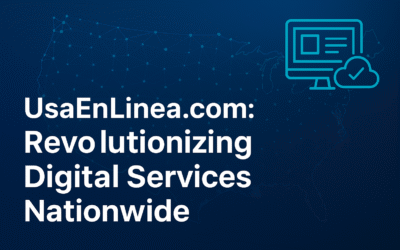

Heptogo Health: 10 Powerful Benefits That Will Transform Your Wellness
Introduction: What is Heptogo Health?
“Heptogo Health” refers to the mission, programs, and impact of the Healthcare Extension Promotion and Training Organization (HEPTO), a nonprofit dedicated to improving health outcomes across East Africa by training healthcare workers, promoting preventive measures, and empowering communities. HEPTO focuses on interventions in mental health, women’s health, chronic disease, surgical services, environmental health, and community resilience. Understanding Heptogo Health means recognizing how grassroots training, preventive care, and local empowerment can reshape health systems. This article explores 10 key aspects of Heptogo Health you may not fully know—its origins, challenges, achievements, and future potentials.
Origins and Vision: How Heptogo Health Began
Heptogo Health emerged from the recognition that many communities in East Africa suffer from inadequate healthcare infrastructure, insufficient trained staff, and limited access to diagnostics and treatment. The organization was founded with the vision that every individual, regardless of their background, deserves access to quality healthcare, education, and empowerment. Their approach is non-political, non-faith-based, focusing instead on sustainability, empowerment, and local ownership.They aim not just to treat illness, but to build systems: training local health workers, improving facilities, raising awareness, and creating programs that can be maintained by the communities themselves.
Core Areas of Intervention: Where Heptogo Health Works
Heptogo Health operates on multiple fronts. Key areas include:
-
Emerging & Re-emerging Diseases: Tackling infectious diseases, neglected tropical diseases, and outbreaks through training, prevention, diagnostic outreach.
-
Chronic Disease Management: Diabetes, cardiovascular disease, respiratory illnesses are rising, especially where preventive care is low. Heptogo seeks to establish chronic disease clinics and equip mid-level staff to manage ongoing conditions.
-
Women’s Health and Empowerment: From safe childbirth to pregnancy complications like eclampsia and gestational diabetes, reproductive healthcare is a priority. Health screenings, maternal health worker training, and community education are included.
-
Mental Health Services: Addressing trauma, depression, stigma, lack of specialist care. Training mental health workers and outreach services are part of the solution.
-
Surgical and Emergency Services: Expanding access in rural and remote areas for essential surgeries, emergency obstetric care, and trauma support.
-
Environmental & Public Health: Clean water, sanitation, waste management, hygiene, disease prevention all play roles. Clean environments reduce disease burden dramatically.
These multiple pillars allow Heptogo Health to address both prevention and treatment across a wide spectrum of health needs.
Training & Local Capacity Building: The Foundation
A key strength of Heptogo Health is its emphasis on training and local capacity. Rather than just importing external aid or personnel, Heptogo works to train local doctors, nurses, paramedical staff, and frontline health workers. This includes non-formal training, community health education, and continuous evaluation of healthcare services.
Training is not limited to clinical skills. It includes public health topics such as sanitation, clean water, waste disposal, early diagnostic techniques, mental health awareness, and maternity care. By building skills and knowledge at the local level, Heptogo Health aims to create sustainable systems that are resilient, scalable, and culturally appropriate.
Mental Health: Breaking the Silence
One of the alarming and often under-reported areas that Heptogo Health tackles is mental health. Many parts of East Africa and other underserved regions suffer from stigma, inadequate infrastructure, few professional resources, and a lack of awareness.
Heptogo trains mental health workers, partners with community leaders, and emphasizes public outreach. This includes educating populations about trauma due to war, famine, displacement, and environmental disasters. They also address congenital mental disabilities and cases arising from abuse or neglect. The goal is both prevention and treatment; helping those suffering find medical, social, and psychological support.
The mental health effort is critical because untreated mental illness can compound other health problems, reduce quality of life, increase risk behaviors, and create long-term societal costs.
Women’s Health & Safe Maternity: Saving Lives at Birth
Women’s health is central to the Heptogo Health mission. High maternal and infant mortality rates in many regions stem from lack of access to emergency obstetric care, poor prenatal and postnatal care, delays in obtaining care, and complications like hemorrhage, preeclampsia, and gestational diabetes.
Heptogo intervenes by training skilled birth attendants, ensuring that clinics have the equipment and facilities for safe delivery, offering screenings and health education to expectant mothers, identifying high-risk pregnancies, and supporting women’s empowerment programs to ensure women have agency in their own health decisions.
Safe maternity efforts also include education about nutrition during pregnancy, monitoring for infectious disease risk, and facilitating emergency transfers when complications occur. These cumulative efforts can significantly reduce maternal mortality and improve overall health for mothers and infants.
Tackling Chronic Disease: From Prevention to Management
While infectious diseases often claim major headlines, chronic, non-communicable diseases (NCDs) are fast becoming major burdens in East Africa. Heptogo Health recognizes this trend and is working to address it. Chronic illnesses like diabetes, hypertension, respiratory diseases, cardiovascular disease, and cancer require long-term management, which is often lacking in remote or underserved areas.
Heptogo’s approach includes establishing chronic disease clinics; equipping them with diagnostics and monitoring equipment; training community health workers in early detection, lifestyle counseling, and treatment adherence; and promoting health education campaigns around diet, exercise, and prevention.
The prevention side—reducing risk factors such as poor diet, tobacco use, lack of physical activity, environmental pollution—is emphasized, because prevention is far more cost-effective and sustainable than treatment alone.
Environmental Health, Clean Water & Sanitation
Health does not exist in a vacuum. Environmental factors—sanitation, clean water, waste management, pollution—have an enormous effect on disease burden. Heptogo Health recognizes that many preventable diseases derive from unsafe water, poor hygiene, unclean living conditions, and environmental hazards.
Programs include education about handwashing, water filtration, boiling, waste disposal, building latrines, managing medical waste, and improving drainage. In some regions, seasonal outbreaks of waterborne diseases like cholera or diarrhea are directly related to environmental health lapses.
Environmental resilience is also part of the strategy: designing healthcare interventions that can withstand climate instability, droughts, floods or other environmental shocks that often exacerbate health problems in vulnerable communities.
Challenges Faced by Heptogo Health
Despite strong mission and programs, Heptogo Health faces a variety of challenges that might hamper scale, reach, or effectiveness:
-
Limited funding & resources: Operating in remote or conflict-affected regions requires equipment, trained staff, supplies, transport—these often cost more and funding is often inconsistent.
-
Human resource scarcity: Brain-drain, low pay, low infrastructure, and burnout among health workers reduce quality and retention.
-
Logistics & accessibility: Remote clinics may be far from roads, with poor transport or communication; during rainy seasons or instability, access becomes even harder.
-
Cultural barriers & stigma: In mental health especially, but also in women’s health or reproductive health, cultural norms can limit uptake, acceptance, or trust in services.
-
Data and monitoring gaps: Measuring outcomes, tracking disease incidence, ensuring quality and accountability pose challenges where record-keeping, diagnostics, and reporting systems are weak.
Heptogo’s strategies to address these include working with local leadership, partnering with community organizations, implementing mobile clinics, and advocating policy reforms.
Impact and Success Stories
Though relatively young, Heptogo Health has recorded promising successes.
-
They have trained healthcare workers from remote villages, enabling clinics and front-line care in areas previously underserved.
-
Outbreak and disease prevention efforts have reduced incidence in certain areas by improving sanitation, clean water supply, and community awareness. For example, programs that educate around hygiene and water filtration have had measurable effect.
-
Maternal and infant health interventions have saved lives by providing emergency obstetric care and birth attendant training. Women in some villages previously without reliable maternity services now have access to safer births.
-
Mental health awareness campaigns have reduced stigma, increased referrals, and created more visibility for patients who were previously isolated.
These success stories are powerful because they build trust, show tangible improvements in people’s lives, and often lead to ripple effects: healthier communities are more productive, children attend school, economies improve, and disease burden decreases.
Future Directions: Scaling & Sustaining Heptogo Health
Looking ahead, there are several critical avenues through which Heptogo Health can grow and deepen its impact:
-
Scaling to more remote regions: Identifying hard-to-reach communities and extending front-line care so no community is left behind.
-
Strengthening partnerships: Collaboration with governments, international NGOs, research institutions, and funders to secure sustainable resources.
-
Enhancing technology use: Mobile health (mHealth) tools for diagnostics, telemedicine, monitoring, and patient follow-ups. Data systems to track outcomes, disease prevalence, supply chains.
-
Policy advocacy: Working to influence health policy, regulatory frameworks, funding priorities so that governmental systems adopt Heptogo’s practices (e.g., clean water, environmental health, mental health funding).
-
Community engagement and ownership: Ensuring that local communities are not just recipients, but co-creators and stewards of health programs. That includes local leadership, use of indigenous knowledge, culturally appropriate interventions.
If Heptogo Health can address challenges while maintaining quality, transparency, and community buy-in, its model can serve as a blueprint for health system improvement across similar contexts.
Conclusion: Why Heptogo Health Matters
In conclusion, Heptogo Health represents more than just relief or aid—it embodies sustainable transformation. By focusing on training, prevention, community empowerment, and environmental factors, it offers a holistic model for improving health in under-resourced settings. Its work in mental health, women’s health, chronic disease, and environmental health is particularly crucial at a time when many global health strategies risk being fragmented or short-term.
If you care about global health, development, or equity, Heptogo Health is a name to know. It is putting into action the belief that health is a human right, not a luxury.











